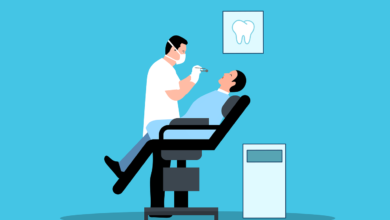Understanding Hormone Replacement Therapy (HRT): Exploring Benefits and Risks

Hormone Replacement Therapy (HRT) has become a hot topic in healthcare, especially for individuals navigating the complex landscape of hormonal changes. Whether you’re considering HRT for menopause, transgender health, or other reasons, it’s crucial to weigh the benefits and risks.
In this article, we’ll break down the key aspects of HRT in simple terms, providing you with the information you need to make informed decisions.
What is Hormone Replacement Therapy?
Hormone Replacement Therapy is a medical intervention that involves supplementing or replacing hormones in the body, typically estrogen and progesterone for women and testosterone for men. This therapy aims to alleviate symptoms caused by hormonal imbalances, such as those experienced during menopause or gender transition.
Benefits of Hormone Replacement Therapy:
- Relief from Menopausal Symptoms: One of the primary reasons individuals consider HRT is to manage the symptoms of menopause. These may include hot flashes, night sweats, mood swings, and vaginal dryness. HRT can provide relief by restoring hormonal balance.
- Bone Health Improvement: Estrogen plays a crucial role in maintaining bone density. As women age and approach menopause, the decline in estrogen levels can lead to bone loss. HRT can help prevent osteoporosis and fractures by preserving bone density.
- Enhanced Quality of Life: HRT can improve the overall quality of life by addressing symptoms like fatigue, irritability, and difficulty concentrating associated with hormonal imbalances.
- Cardiovascular Health: Some studies suggest that HRT may have a positive impact on cardiovascular health, reducing the risk of heart disease in postmenopausal women. However, this aspect is still a topic of ongoing research.
Risks and Considerations:
- Breast Cancer Risk: One of the most debated aspects of HRT is its potential association with an increased risk of breast cancer. Women considering HRT should discuss their individual risk factors with healthcare professionals to make informed decisions. It’s important to mention that if you’re a Tricare beneficiary, certain aspects of HRT, including breast pumps like the Tricare Breast Pump, may be covered. Always check with your healthcare provider or Tricare for personalized information.
- Blood Clot and Stroke Risk: Estrogen, especially in combination with progestin, may slightly elevate the risk of blood clots and strokes. This risk is higher in women who smoke or have other cardiovascular risk factors.
- Endometrial Cancer: Women who still have a uterus and are on estrogen-only HRT may have an increased risk of endometrial cancer. Adding progestin to the therapy can mitigate this risk.
- Individual Variability: Every person’s body reacts differently to hormones. It’s essential to monitor and adjust the hormone dosage based on individual responses and regularly consult with healthcare providers.
Conclusion:
Hormone Replacement Therapy is a powerful tool that can provide significant benefits for those grappling with hormonal imbalances. However, like any medical intervention, it comes with potential risks that must be carefully considered.
If you are considering HRT, open and honest communication with your healthcare provider is crucial to tailor the treatment to your specific needs and monitor its effects over time. Remember, informed decisions lead to better health outcomes, and your well-being is always the top priority.




